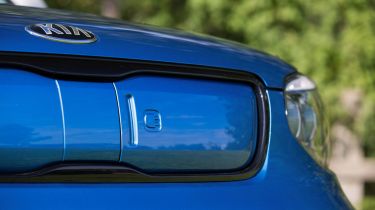Kia Soul EV (2014-2018) reliability & safety
Reliability is assured by an industry-leading warranty, but there’s not much advanced safety kit

| Euro NCAP rating | Adult protection rating | Child safety rating | Safety assist rating |
|---|---|---|---|
| 4 stars | 84% | 82% | 56% |
With the rapid development in active safety and autonomous driver systems, the Soul EV already feels a bit off the pace. Yes, it has six airbags, stability control and brake assistance, but you’ll need to look elsewhere for features such as active cruise control, lane-keeping assistance or even blind-spot monitoring.
Kia Soul EV reliability & problems
It’s sold in such small numbers that the Soul EV hasn’t made an appearance in our Driver Power satisfaction survey, yet the standard Soul has a good reputation backed up by Kia’s highly impressive – and reassuring – seven-year/100,000-mile warranty. You’ll need to keep on top of the servicing schedule to keep the warranty valid, but Kia offers a five-year service plan for around the £300 mark.
The electric drivetrain is relatively simple compared with an internal-combustion engine, as it has fewer moving parts to go wrong, while the rest of the Soul package is well built and has a good-quality feel inside and out.
Safety
The Soul EV hasn’t been crash-tested as a standalone model by the Euro NCAP organisation. However, we’d expect it to perform similarly to the regular Soul, which was awarded only four out of five stars.
The problem causing the NCAP testers to withhold the vital fifth star wasn’t with adult or child-occupant safety, which both scored reasonable marks. Unfortunately, the lack of an autonomous emergency braking system holds the Soul EV back, and indeed there’s very little in the way of latest advanced safety tech on the Soul’s spec sheet. Newer rivals are much more focused on safety-critical tech, as witnessed by the array of safety gear on the new Hyundai Kona. We’ll likely have to wait for the next-generation Soul EV in 2020 in order to play catch-up.


